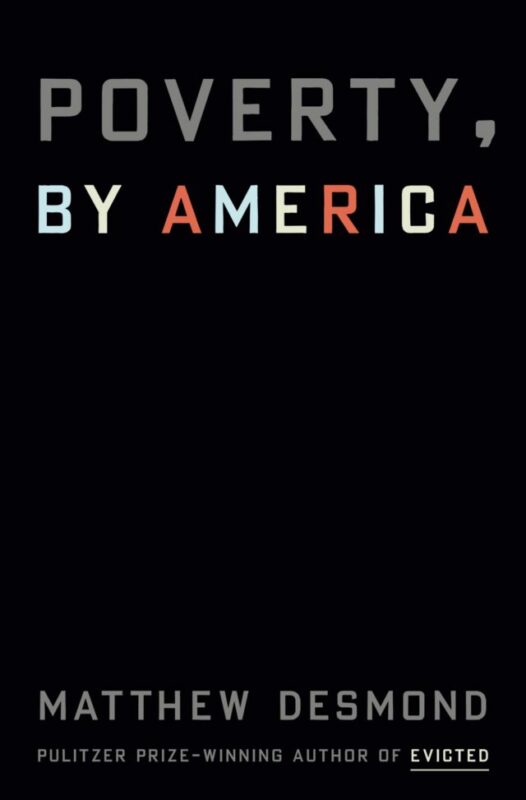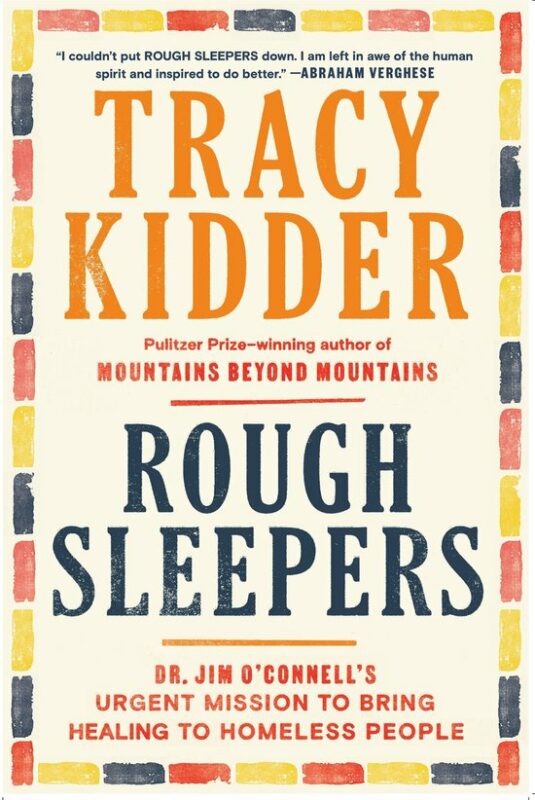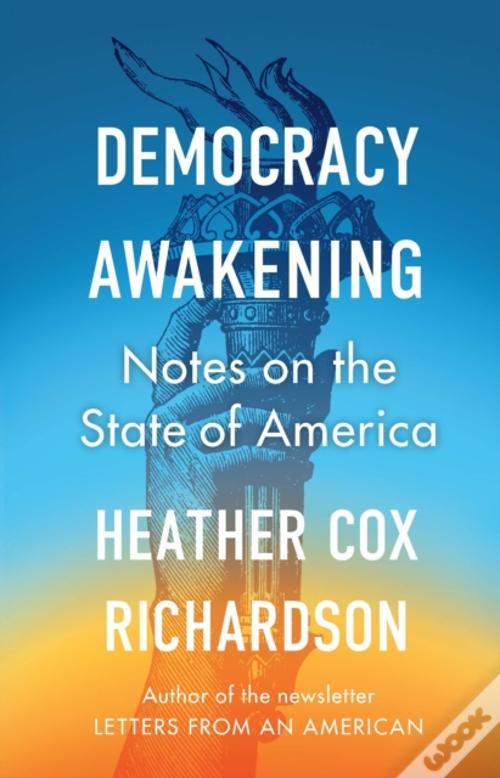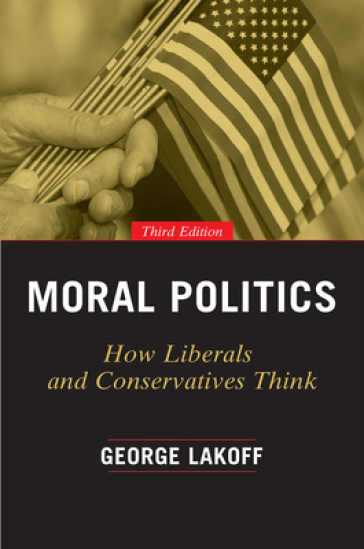It is the nature of contemporary life, I suppose, that events less than a year old seem to have happened long ago. It was only last March that I read Matthew Desmond’s Poverty, By America. That book should have dominated public conversation. It should been hashed over in every corner of the media and fast-tracked as a Netflix series. A friend read it, and we talked about it for a week or so. But every few days, a new emergency arrives and covers over the one that came before it. Did Desmond’s book get enough play? It doesn’t feel like it.
That might make sense had the book been an indigestible doorstopper, but Poverty, By America is a quick read, less than 200 pages minus the notes, written in swiftly-paced prose, and laser-focused on its argument: that poverty in our nation is the result of systemic exploitation in the sectors of labor, housing, and finance; that, in other words, our economy is structured to make—and keep—a large segment of its population poor.

Nothing new, some might say. To explain the persistence of poverty, liberals and leftists typically speak in terms of systems. Oppression and exploitation inhabit and are reproduced within institutional structures. The right, in contrast, focuses on individual character. Hard work and self-discipline, the ability to defer gratification, wise life decisions, and piety are what make the difference between prospering and being poor. Moving further rightward along this spectrum, defects in character are associated with some racial essence, and racist ideas are mobilized by racist power.
Without arguing in an explicitly partisan manner, Desmond offers plenty of empirical evidence to support progressive modes of analysis and examples of liberal policies that have proven to be effective toward leveling the economic playing field. He also offers evidence that demonstrates the failure of right-wing, character-based policies. Yet he declines to rest in structural explanations. “At the end of the day,” Desmond asks, “aren’t ‘systemic’ problems—systemic racism, poverty, misogyny—made up of untold numbers of individual decisions motivated by real or imagined self-interest?” (40-42).
I frowned at the question, reminded of Margaret Thatcher saying there is no such thing as society, reminded of politicians pontificating about ‘colorblindness’ and defining racism as entirely a matter of the individual human heart. But Desmond’s point is that both structural and character-based explanations can be ways to evade responsibility. “Tens of millions of Americans do not end up poor by a mistake of history or personal conduct,” he writes. “Poverty persists because some wish and will it to” (40).
Poverty persists, in other words, because there are beneficiaries, and those beneficiaries aren’t only the super, crazy rich, not only the homegrown oligarchs so chillingly satirized in the HBO series, Succession. Those beneficiaries are any of us whose free bank accounts, for instance, are funded by the overdraft penalties that the poor regularly pay, any of us whose home values have skyrocketed due to the manufactured scarcity of affordable housing or whose mortgage payments are offset by the Mortgage Interest Deduction. Those beneficiaries are any of us invested in the stock market, even through their employer retirement investments. It’s one thing to say that the economy is structured to make a segment of the population poor. It’s a step further to point out how their poverty funds the prosperity of the other segment.
If this isn’t troubling enough, Desmond draws an analogy between the persistence of poverty today and the persistence, in earlier times, of chattel slavery. The free benefited from the exploitation of the enslaved, and not only the southern oligarchs, the slaveholders, the slave traders, not only white Americans in the South, but all free Americans, as groups, as families, and as individuals. Desmond calls for Americans to become “poverty abolitionists,” and as the nineteenth-century anti-slavery abolitionists did, to take a stand, join the movement, disavow the benefits, and act to bring poverty to an end.
Here again I shifted in my chair. During those days of the US History course that I teach, when we’re covering the antebellum period, the abolitionist movement, and “the Crisis of the 1850s,” the question has crossed my mind more than once: Would you have been an abolitionist back then?
I won’t belabor the logical problems this sort of inquiry involves except to say that we are products of our historical moment. There’s no going back in time and being the same person you are now. Yet the question keeps returning. It’s trying to get at something. Abolitionists were those willing to be vilified and put in danger of attack or exile. To be an abolitionist was to be annoying, a troublemaker, an agitator of the social peace. It was to be willing to put one’s future at stake. So when I ask myself, would you have been an abolitionist then, what I’m really asking is, are you willing to be the equivalent of one today?
Some of us, when an idea disturbs our peace of mind, follow the homeopathic school and seek out more of the same. I went back and read Desmond’s previous book, Evicted: Poverty and Profit in the American City, (winner of the Pulitzer Prize in 2017) and then a more recent book by Tracy Kidder called Rough Sleepers, about the homeless in greater Boston.

Kidder’s hero is a doctor named Jim O’Connell. O’Connell was a gifted student of philosophy who came to medicine late in life. Overwhelmed by the great human problems, he finds peace in service to the poor. He treats their diseases, tends to their wounds, loans them money. He washes their feet in a kind of pride-purging ritual. One of the ongoing conflicts of the book is that although O’Connell helps individuals, his work does little to nothing to solve the general problem. When from time to time the truth of this discourages him, he remembers his mentor, Barbara McGuinness, a nun who ran a city clinic. It wasn’t uncommon for a new volunteer at the clinic to raise exactly the question that haunted O’Connell: What can we do to fix the problem itself?
McGuiness had little patience for the question. The important thing, she’d say, was to “do the best we can right now and take care of these folks.” O’Connell didn’t love the answer, but he accepted it. “This is what we do while we’re waiting for the world to change.”
Desmond shows a similar impatience with abstractions now and then in Poverty, By America. For instance: Is abortion immoral? What are the limits of bodily autonomy? When does life begin? These questions can never be resolved, Desmond states. What he knows for certain—what, in other words, sociology shows—is that when access to abortion is restricted, the number of women suffering poverty increases, and women already suffering poverty, suffer more. Evidence from sociology also supports the effectiveness of anti-poverty programs, especially those that put money directly into poor people’s pockets. Poor people tend to use that money to leverage opportunities and practices that serve to buffer against poverty’s ever-narrowing constraints.
Desmond cites, for instance, those arrangements that aided workers during the pandemic—tax breaks, direct checks from the government, protections against eviction, suspended loan payments, and so on—that not only worked to help sustain life under pandemic restrictions but that resulted in a significant reduction in poverty. Desmond has policy ideas that could be put into place immediately: Beef up the enforcement arm of the IRS so that the wealthiest tax cheats pay their fair share. Get rid of those tax policies, such as the Mortgage Interest Deduction, that don’t reduce poverty so much as they subsidize wealth. “Tear down the walls” that allow resources to be made scarce and that in turn allow the poor to be corralled into spaces that facilitate their exploitation.
These are “liberal” ideas, by any conventional understanding of the word. For those who take a more radical stance, these policy ideas are insufficient. For these folks, many of them young—the age of my children, of my students, with their whole (none-too-promising) futures ahead of them—the situation is too dire, too urgent for liberal tinkering. They might also point out how Desmond has nothing to say about the climate emergency. Desmond’s policy recommendations may indeed result in a ticking down of the poverty index. But will they have any effect on the collapse trajectory?
For some who think this way, the change space is in fundamental orientation, worldview, metaphysics, the social imaginary, what-have-you. Desmond is evenhanded here, too. Along with his policy suggestions, he includes passages that speak to the social imaginary. He quotes, for instance, from Sondheim’s Sweeney Todd: “The history of the world, my sweet, is who gets eaten and who gets to eat.” This predatory, hyper-competitive model continues to dominate the center of social reality, despite a constant stream of criticism. Desmond astutely points out how we condemn such arrangements when they occurred in the past, as with slavery, but in the present, tend to let them slide. Why? Desmond speculates that we are “captivated by a heroic narrative of progress” (43). The very fact that these critiques are so old and familiar makes me doubt the very possibility of change at this level of abstraction.
On this matter, Desmond quotes James Baldwin:
Any real change implies the breakup of the world as one has always known it, the loss of all that gave one an identity, the end of safety. And at such a moment, unable to see and not daring to imagine what the future will now bring forth, one clings to what one knew, or thought one knew; to what one possessed or dreamed that one possessed.
The quote comes from Baldwin’s 1956 essay, “Faulkner and Segregation.” It’s another reminder of the correspondence between American poverty and the legacy of enslavement. Desmond hastens to add that giving up our identity as modern people also means giving up the baggage that goes along with it, the shame of living well in a society where so many struggle to procure the basic necessities. It means giving up “the loneliness and empty materialism” of contemporary life (176-77).
To be clear, Desmond believes Americans can abolish poverty but “only when a mass movement demands it so” (184). He sees promise in present-day labor movements and movements for housing justice. He gives People’s Action and William Barber’s Poor People’s Campaign each a shout-out. He quotes Deepak Bhargava, former president and executive director of the Center for Community Change. “Get into relationship,” Bhargarva advises. “Find some way in your life to be in relationship with working class and poor people” (185-88)—not the relationship of a person of means giving charity to someone in need, but a relationship of equals working together in a political cause.
“Would you have been an abolitionist back then?” That question I asked myself in class was always fleeting, as if something were keeping me away, some avoidance of disappointment in myself, perhaps, and on the other side of that, a crush of hopelessness and futility. If it is indeed possible to make change in abstract imaginaries, there’s a force field, a strong one, warding it off. Partisan polarization may be a component of the force field, or as Desmond puts it, “just another scarcity diversion, just another way to narrow our vision so that an emancipated future remains outside our field of view” (188). He doesn’t believe that the issue of economic injustice is a partisan one. He believes it’s a cause everyone can get behind.
This essay was published at the Society for US Intellectual History blog.



